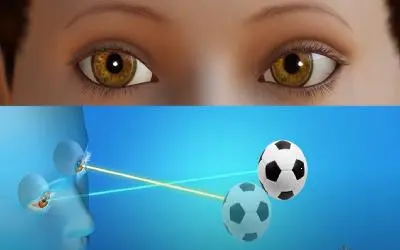Reading, writing, and arithmetic constitute the bedrock of our educational structure, forming the essential skills for your child’s success in school. However, Functional Vision Problems can significantly influence all three.
Functional vision problems represent issues not easily detected by standard school vision screenings, yet they can deeply impact your child’s academic and social life. Here’s a detailed look at how these problems can affect your child’s performance in the fundamental areas of reading, writing, and arithmetic:
WHY YOUR CHILD MAY BE STRUGGLING IN READING
Functional vision problems impact reading in two significant ways:
During the learning-to-read phase, a severe vision issue can hinder a student’s ability to recognize and remember numbers and letters, affecting their comprehension of what they’re studying. Consequently, a budding reader might struggle to keep up with peers who are mastering this skill.
When a student is reading to learn but experiences blurry or double vision, their capacity to sustain reading for extended periods and comprehend the material is significantly diminished. This impedes their ability to process information swiftly, leading to falling behind their classmates.
It’s crucial to differentiate between “learning to read” and “reading to learn.” The latter requires comprehension, which heavily relies on proficient visual skills. Dysfunctional vision can profoundly affect this aspect. For instance, if a student perceives words on the page as blurry or doubled, they must exert extra effort to maintain clarity, negatively impacting comprehension.
In both scenarios, students with vision problems devote most of their time decoding words. Instead of reading smoothly and grasping the message as a whole, they concentrate on individual words. This struggle makes it challenging to swiftly process text sections.



